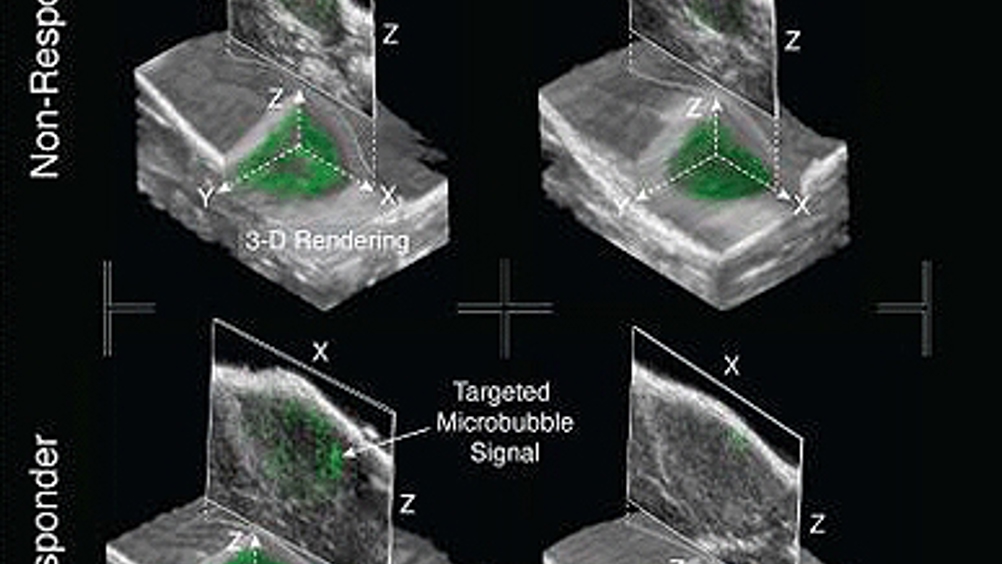Analysis techniques detect early response to cancer therapy
A preclinical study from the US shows the potential of new technologies to detect responses to cancer therapy earlier.

The study from University of North Carolina Health Care found that by using two non-invasive technologies, a patient’s response to therapy can be detected earlier than by relying on tumor volume changes.
The research, published in Technology in Cancer Research and Treatment, involved experiments using ultrasonic molecular imaging (USMI) and Dynamic Contrast Enhanced-Perfusion Imaging (DCE-PI) to measure response to therapy for pancreatic cancer.
In a statement Paul Dayton, PhD, senior author said, ‘What we found is that using two non-invasive technologies, we can detect response to therapy earlier than by relying on tumor volume changes.
‘Having new non-invasive, inexpensive technologies available to measure response to therapy earlier during the course of treatment would be a significant advance in the ability to tailor a person’s treatment to improve outcomes.’
Dr. Dayton, an Associate Professor of Biomedical Engineering, worked with Jen Jen Yeh, MD, Associate Professor of Surgery and Pharmacology, to evaluate the imaging technologies on human pancreatic cancer in a pre-clinical model.
Register now to continue reading
Thanks for visiting The Engineer. You’ve now reached your monthly limit of news stories. Register for free to unlock unlimited access to all of our news coverage, as well as premium content including opinion, in-depth features and special reports.
Benefits of registering
-
In-depth insights and coverage of key emerging trends
-
Unrestricted access to special reports throughout the year
-
Daily technology news delivered straight to your inbox










Water Sector Talent Exodus Could Cripple The Sector
Well let´s do a little experiment. My last (10.4.25) half-yearly water/waste water bill from Severn Trent was £98.29. How much does not-for-profit Dŵr...